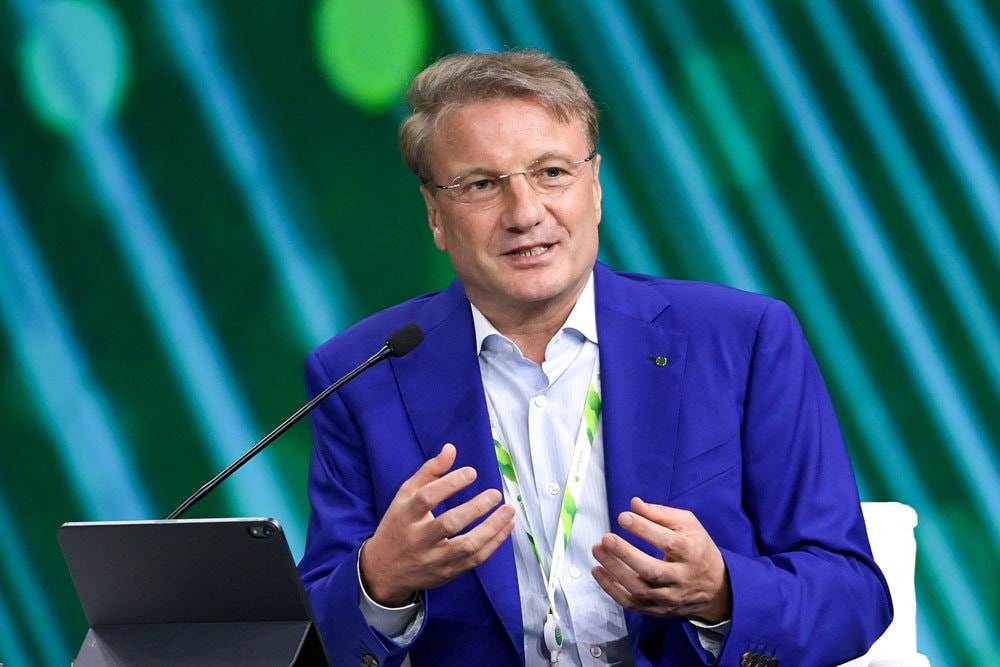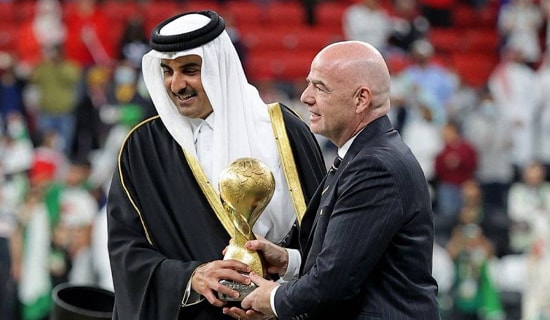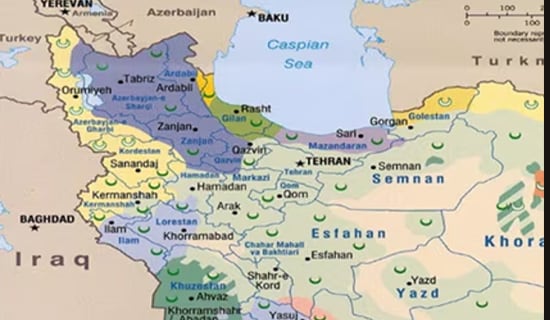Russian President Vladimir Putin appeared to fire a shot across the bow of Accounts Chamber chief Aleksei Kudrin. Kudrin has frequently expressed skepticism about Putin's highly touted national projects that are projected to jumpstart the Russian economy, whose performance has disappointed Russia's citizens. The twelve national projects are budgeted at $400,000,000,000,– a huge sum by Russian budgetary standards. This criticism of the national projects seems to be getting under Putin's skin and he used the TASS 20 Questions interview with him to put Kudrin in his place, albeit in a good humored fashion. He recounted previous clashes with Kudrin where Putin's position had been vindicated and claimed that Kudrin who basked in his lack of direct responsibility had displayed inconsistency in his positions.
Putin sought to assure the viewers that in contrast with the lackluster state programs under Medvedev, the national projects would succeed because he would ride herd on the bureaucrats and would not allow them to slack off. After Putin's remarks, both the presidential administration and Kudrin himself made efforts to play down the differences. One expert however believed that Putin's remarks had backfired and Kudrin was becoming an influential player as Russia lurched towards 2024, when Putin presumably departs the presidency.
A survey of the dustup between Putin and Kudrin follows below:

Putin consults with Kudrin (Source: Vademec.ru)
Gref And Kudrin Question The Wisdom Of National Projects
Two former Russian finance ministers, German Gref and Alexei Kudrin have recently expressed their doubts about the economic benefits that the national projects will provide the Russian economy. Gref is now the CEO of Sberbank while Kudrin heads the Accounts Chamber.
In the session devoted to "Economic Reforms in Russia: Evolution and Current Priorities" at the Moscow Financial Forum in September, 2019, Gref warned against outsized allocations for the national projects and advocated maintaining the monetary policy. "National projects...will not produce the desired result". The projects were not properly structured and lacked the mammoth resources for their realization.[1]

German Gref (Source: Rg.ru)
At a joint meeting at the Kremlin in December 2019, Kudrin maintained that the implementation of national projects will not be able to ensure economic growth of up to 3% in 2021. He added: "the achievement and implementation of national projects will not lead to the achievement of national goals." [2]
In January, shortly before the fall of the Medvedev government, Kudrin called for a review of national projects. "We proposed to return to the issue of managing national projects, because the projects must be breakthrough. And in the existing form, national projects will give only a local effect. This is important, but does not provide a breakthrough, " Kudrin explained.[3]
Putin Hits Back
Vladimir Putin used the platform of the TASS interview to reassure the viewers that the national projects would be a success and then he took a few potshots at Gref and Kudrin.
Putin claimed that his oversight would ensure the projects' success. Putin told the interviewer that he was keeping his subordinates "under administrative pressure and tension" in order to improve the quality of their work. This went beyond keeping his finger on the pulse: "It is necessary that [subordinates] be rattled, that people sense their responsibility, and [they] should be under constant administrative pressure and tension,” Putin said. Otherwise, "the guys begin to take it easy."[4]
The Medvedev era, explained Putin, did not have something resembling the national projects. These projects now defined clear goals and also specified how they were to be achieved. And for each issue there would be personal responsibility. "We have not used such tools before."
Putin also claimed that the preliminary results were encouraging. Putin did not subscribe to the notion that with national projects the first pancake always comes out lumpy." Putin acknowledged that not everything was done, but also indicated that in 2019, 26 out of 38 tasks were completed. [5]
Having reassured the public about the national projects, Putin turned to Kudrin and was served a question by interviewer Andrei Vandenko who asked him to react to Kudrin's assertion that the national projects would not pan out.
Putin responded that this was not the first disagreement with Kudrin: “He [Kudrin] was against every issue,” Putin shared his memories. “For example, he was categorically against the construction of the ring road in St. Petersburg...Together with [German] Gref, the Minister of Economics and the Minister of Finance, they came to me twice,” the president noted. “When I poked them there, then they allocated money for the construction of the ring road around St. Petersburg.”[6]
Putin claimed that Kudrin displayed inconsistency "Kudrin is a great fellow, because when he was the Minister of Finance, he advocated a tough macroeconomic policy and opposed spending extra money from the budget."[7]
Now, Putin observed, Kudrin favored using oil and gas revenues to pay for consumption. Kudrin had changed by moving to the Accounts Chamber: “The angle of perspective has altered, and the eye sees more clearly, because it’s not afraid that something will fly into this eye...There is no direct responsibility. And the people with whom he worked, who are, to a certain extent, his students, they’re in a state of disbelief.[8]
Efforts To Tone Down The Dispute
Both sides subsequently tried to tone down the dispute. For one thing, Kudrin commands respect, and his positions are not necessarily outlandish. Dmitry Solonnikov, director of the Institute of Contemporary State Development explained: -"The position of Gref and Kudrin that money can be sent somewhere else, and not to large projects, has several points. When they talk about the dangers of allocating very large sums to state projects, they mean that money will be plundered in many respects, and finances will be siphoned off abroad. We saw that on the Ring Road in St. Petersburg, on the construction of the Russian Bridge in Vladivostok and facilities for the Sochi Olympics, many criminal cases were instituted. Liberal economists have an internal contradiction: they are well aware that theft and withdrawal of money abroad are possible - they don’t want to control it and reach the conclusion that they don’t need to finance it either. "
Putin's smack down was prompted by the fact that Kudrin was becoming an influential player argued Solonnikov: "Currently the powers of Alexei Kudrin and his Accounts Chamber are much broader than those of previous leaders. He appears much more often in the press and is an active participant in politics. His personal and structural influence on ministries, ministers and heads of federal agencies is growing. The departure of the Medvedev government is largely due to the reports and data presented by the Accounts Chamber."[9]
Political scientist Konstantin Kalachev, who heads the "Political Expert Group" believes that there will always be tension between Putin and Kudrin, but it will not lead to a complete rupture. Putin respect Kudrin as a person with whom he can discuss economic matters and as a straight shooter. On the other hand, he embodies the systemic liberal, whom Putin disdains.[10]
Putin's press secretary Dmitry Peskov sought to spin Putin's remarks about Kudrin and Gref as a description of a policy process where honest differences sometimes arise: "When decisions are made and discussions are held on large megaprojects that involve huge budget expenditures, of course, members of the government and the economic bloc sometimes diverge in their understanding, diverge in their positions,” Peskov explained.[11]
Kudrin also played his part in cooling down the issue by crediting Putin with saving the Russian economy by backing Kudrin's proposals: "It happened in 2008, when the world was faced with a severe financial and economic crisis. Then Vladimir Putin served as head of government and it was he who approved the decision to create reserve funds." Putin's decision, explained Kudrin,"played a decisive role in saving the economy and social spending." As a result, wages held firm "and pensions [a sore point of recent economic policy] even doubled during that period,” recalled Kudrin.[12]
Kudrin followed Peskov's line in de-dramatizing his differences with Putin: "Vladimir Vladimirovich recalled our discussions on key projects when I was the Minister of Finance. Of course, most of the investment projects were agreed on in the usual way, and only the most sensitive and controversial issues were put up for discussion by the president. We usually had a frank and open conversation" - said Kudrin.[13]
[1] Vedomosti.ru, September 13, 2020.
[2] Kommersant.ru, December 25, 2019.
[3] Ria.ru, January 14, 2020.
[4] Rbc.ru, February 25, 2020.
[5] Gazeta.ru, February 25, 2020.
[6] Tass.com February 25, 2020.
[7] Iz.ru, February 25, 2020.
[8] Gazeta.ru, February 25, 2020.
[9] 19.rus.ru,February 27, 2020.
[10] 19.rus.ru,February 27, 2020.
[11] Rbc.ru, February 25, 2020.
[12] Tass.ru, February 27, 2020.
[13] Tass.ru, February 25, 2020.








